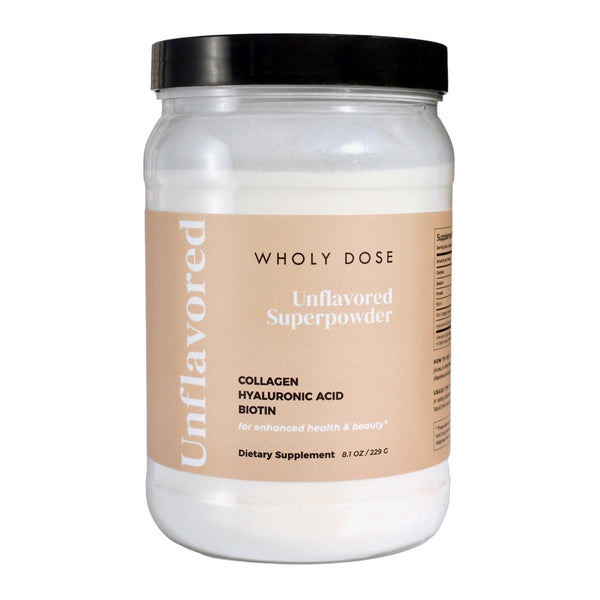
Causes for Female Hair Loss
Think of hair growth like flowers in a garden – it's what's happening underneath that allows the flowers to grow. Hair growth is a result of what's happening under the surface of your hair.
Wendy Roberts, MD, a dermatologist in Rancho Mirage, California explains that just like a garden, "A normal hair cycle should lead to a product, which is the hair.” She states further, “Growth cycles are important because when they go awry, that is one of the reasons we have hair loss.”
Many things can interfere with this cycle of hair growth, such as illness, infection, medication, diet, or harsh chemicals – which all have the potential to stop hair from growing properly.
The scalp involves several moving pieces in order for hair growth to function properly, Roberts further explains, “It’s a very dynamic place and anything that can get the cycle off can cause hair loss.”
While hair loss may be more commonly known as a greater problem for men, women are just as likely to lose hair, or have thinning, shedding hair. Most women notice hair loss in their 40s, 50s, or 60s, and it can happen at any age for a number of reasons.
How Hair Grows
Hair growth occurs in three different cycles: anagen, catagen, and telogen.
About 90% of the hair on your head is in the anagen cycle, which is the growth phase. This can last anywhere from 2 to 8 years. The transition cycle, also known as the catagen, lasts 2 to 3 weeks, during which the hair follicles shrink. The last cycle, the telogen, which lasts 2 to 4 months and is the cycle where hair rests.
For a majority of the time, the hair on your scalp is in the growing phase. For about 10% of the time, the hair is in the transition or resting phase. Hair grows about 6 inches in a year for most people.
There are signs of hair loss that women can look for. While men’s hair recedes from the forehead back, women's hair tends to result in hair thinning. Sometimes, hair near the crown will stay intact, Nicole Rogers, MD of Old Metairie Dermatology in Metairie, Los Angeles explains. She further states that women can see greater amounts of hair loss at the front when their hair is pulled back or tied up.
From a medical point of view, Rogers explains that when a patient comes in with concerns about hair loss, there are many ways to come to a conclusion about the source and reason for the hair loss, such as blood work that can be taken to ensure the thyroid gland or an autoimmune disease is not the cause.
Hair Loss Conditions & Medical Causes
If hair follicles are "uniform in size" or the hair loss is sudden, the causes can be medical rather than hereditary, Rogers explains.
While there is a wide range of causes that can result in hair loss, the most commonly experienced causes are pregnancy (or postpartum), thyroid disorders, and anemia. Other hair loss causes include autoimmune disorders, polycystic ovary syndrome (also known as PCOS), and skin conditions like psoriasis and seborrheic dermatitis.
It is commonly thought to be a thread between menopause and hair loss, but Roberts explains that there is not a direct correlation. Rather, hair loss and menopause occur at the same age.
Roberts also explains that other sources of hair loss can include extreme stress, physical trauma, illness, dramatic weight loss in a short period of time, or too much Vitamin A. With these causes in mind, hair loss can occur in a few weeks to a 6 month period. “Someone can have surgery and be just fine and then 2 weeks later their hair starts falling out, resulting in something very scary when it starts falling out in big clumps”, states Roberts.
Diet can also have a contributing factor to hair loss and hair thinning. Your hair is primarily made up of protein and needs a balance of proper proteins (amino acids) to thrive.
If you're not getting enough protein from your diet or through supplements, your hair can start to shed and fall, even leading to hair loss.
FIGHT HAIR LOSS WITH HAIR GROWTH SUPPLEMENTS
FOR HEALTHY, STRONGER GROWING HAIR
How Hair Care Is Linked To Hair Loss
Hair loss can also be self-inflicted from certain hairstyles like tight buns, cornrows, or tight braids – which can cause hair loss called traction alopecia. Anytime your hair is tightly pulled – especially for a long period of time – your hair can break.
Other hair loss causes include common treatments such as dyes, chemicals, and brushes, or excessive heat from blow dryers and flat irons. This also includes brushing too much and excessively towel drying.
Hair Loss Solutions & Treatments
If you're dealing with hair loss, in most cases the hair will grow back on its own or with a hair growth treatment. However, it is important to see a dermatologist if there seems to be something excessively wrong. With hair loss, the sooner the treatment begins, the greater the chances are for improving your hair growth cycle.
Up your protein intake through food and supplements.
For an effective way to regrow hair and fight hair loss, use a collagen peptide or biotin supplement daily. Collagen and biotin are clinically proven to help strengthen hair and aid with hair loss. Wholy Dose supplements combine collagen, biotin, and silica for optimal hair boosting results – all ingredients are proven to help treat and prevent further hair loss, and can aid in your hair growth process.
When you wash your hair, be sure to use gentle motions and avoid pulling on your hair during the process. Use haircare products like shampoo, conditioner, and treatments that don't contain harsh chemicals like sulfate.
Lastly, reduce your stress levels by identifying stress triggers and find ways to cope with stress. This can be done daily such as reducing caffeine, going for a run or breaking a sweat, meditating, or taking breaks throughout your work day.















